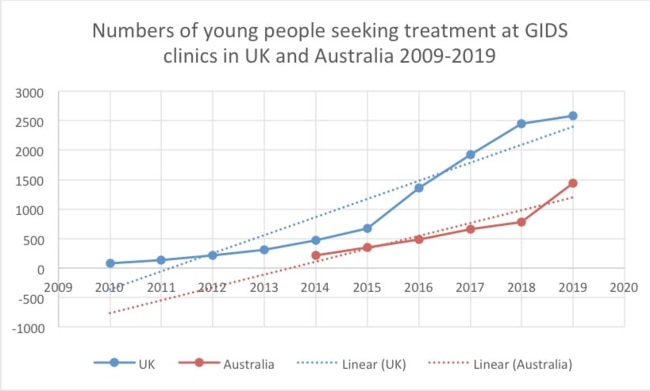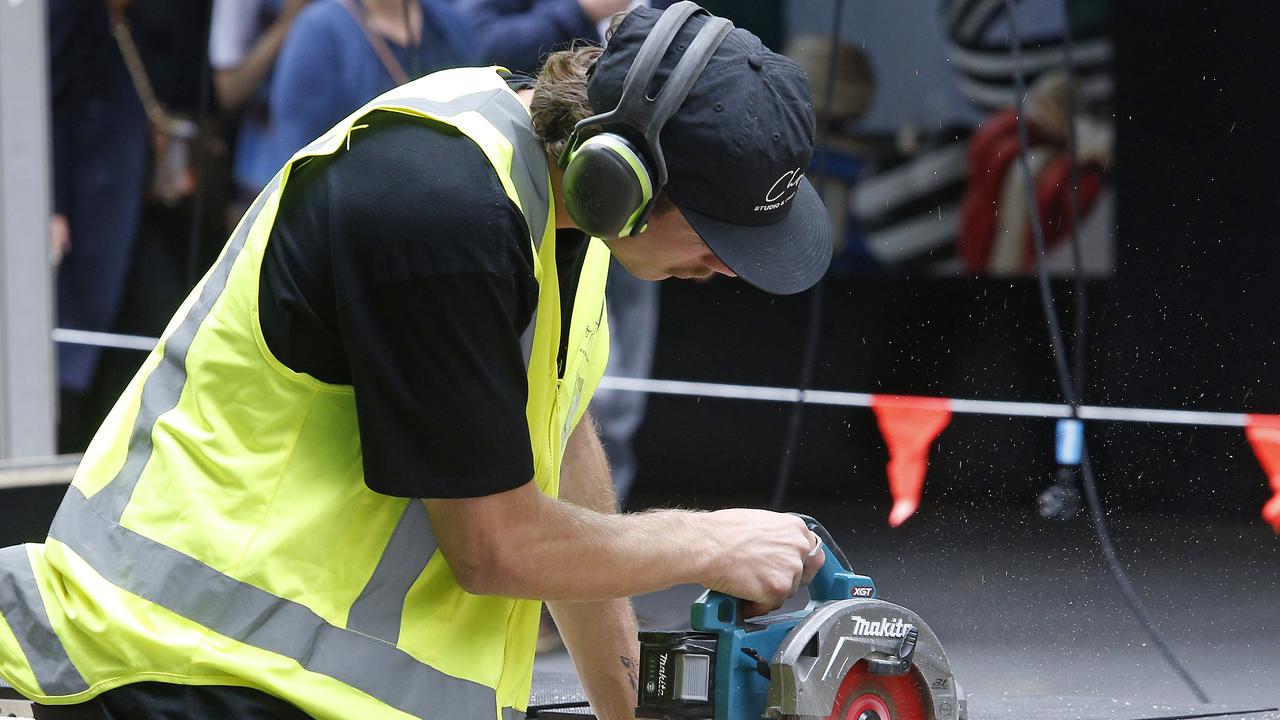Parents argue caution on trans drugs cannot be judged ‘abuse’
The state cannot remove a child and brand parents as abusive for resisting medicalised gender change, a court will be told.

The state cannot remove a child and brand her parents as abusive and neglectful simply because they resist medicalised gender change with risks including sterilisation, Western Australia’s chief justice will be told on Tuesday.
Justice Peter Quinlan is to rule on a legal challenge in Australia’s first known case of a minor taken into care after the parents expressed doubts about the safety of cross-sex hormone treatment for their daughter who identifies as a transgender male.
There has been a shift towards greater caution internationally about treatment for the bodily distress of gender dysphoria since the child was taken into state care in 2019 on the eve of her 16th birthday after a reported plan to commit suicide.
The latest developments overseas include agreement by most of Sweden’s youth gender clinics to restrict or better monitor puberty blocker drugs and synthetic hormones, pending new national treatment guidance from a government health agency.
This appears consistent with the UK High Court’s ruling in the 2020 Tavistock clinic case that the evidence for puberty blocking is so meagre it is experimental medicine.
Meanwhile, the Perth Children’s Hospital gender clinic, one of Australia’s three major centres that follow the “gender affirmative” medical model, is undergoing a secretive review, with judicial oversight of treatment decisions. In September 2016, the clinic had 100 young patients, rising to 432 on the same September day last year, when 63 were on cross-sex hormones.
Video: Therapist Stella O’Malley on a new parents’ group concerned about gender clinics
On Tuesday the lawyer for the parents is expected to argue before Justice Quinlan that a children’s court magistrate last year was wrong to find emotional abuse and neglect in their natural caution about “affirmative” medical interventions and their wish to explore less invasive psychological treatments and other possible reasons for their daughter’s distress.
In the Supreme Court appeal, the lawyer will point out that even the psychiatric gender expert relied upon by the magistrate had conceded the area of gender dysphoria was highly controversial and different experts might come to different conclusions about diagnosis and treatment.
The child, whose identity has been protected, will be free to begin testosterone later this year when she turns 18, but her parents told The Australian their appeal was still important to undo the abuse and neglect findings against them, and to protect other parents from a similar misuse of state power.
“We were found unjustly guilty of future potential mental health abuse, should the government let our daughter come back to us, because (the gender clinicians) think she would be emotionally damaged if we do not allow her to use hormones to destroy her health and fertility,” the father said.
The parents’ case also argues that testosterone treatment – injected to masculinise the body of a biological female – poses known and unknown risks.
The informed consent document for testosterone drugs, obtained from the Perth gender clinic under FOI law, warns young patients of “mood swings and aggressive behaviour” and other risks, including blood clots, heart attack, high blood pressure, stroke, liver disease and “manic/psychotic symptoms”.
“It is not known whether testosterone increases the risk of breast/uterine cancer,” the 8-page document says.
Here is my latest feature, written with â¦@BeckyMcCallLtdâ©. Thanks to all the doctors who spoke to us, but most of all thank you 🙠to the brave young woman who is â¦@KLBfaxâ©, as we mine her truth once more. https://t.co/2MH7pYnIYM
— Lisa Nainggolan (@LisaNainggolan1) April 26, 2021
The WA Department of Communities will be represented in the appeal hearing by senior counsel Carolyn Thatcher, who will argue the magistrate was entitled to make a finding of emotional abuse because the parents had denied the child’s “stated feelings about his gender identity” and failed to accept the gender dysphoria diagnosis.
A psychiatrist gave evidence the child would be at high risk of suicide if returned to parents who failed to “affirm” his male gender identity.
Gender clinics assert their affirmative medical interventions are “lifesaving” but critics say there is no good quality, long-term evidence to back up this claim.
Following reports in this newspaper, the Royal Australian and New Zealand College of Psychiatrists in 2019 set up a working group to review gender dysphoria treatment for minors.
The review is still going but The Australian understands the working group considers the lack of clear evidence would make it very difficult for the college to come up with formal clinical guidelines on how to respond to the surge in teenagers declaring a trans identity.
Gender dysphoria is a condition classified by psychiatry’s diagnostic manual DSM-5.
In July, Brisbane GP Fiona Bisshop, who is president of the gender clinicians’ lobby the Australian Professional Association for Trans Health, claimed gender affirming treatment was “not controversial”.
In Sweden, the Stockholm gender clinic which is part of the famous Karolinska Institute moved ahead of promised national guidance with its mid-year decision to limit under-18 hormonal treatments to strictly controlled clinical trials.
A Karolinska manager Svante Norgren said it was unsustainable to wait for the new government guidance, given major shortcomings in the scientific basis for these treatments, according to a news report earlier this month in a journal of the Swedish Medical Association.
Sweden’s National Board of Health and Welfare is expected to issue the new guidance later this year.
Following the Karolinska’s lead, most of Sweden’s six university-based youth gender clinics have reportedly adopted a more cautious approach to under-18 medicalised gender change, pending the updated guidance.
This new caution will limit hormonal treatment to exceptional cases, unless they are part of a clinical trial or tracked in a national register of gender dysphoria treatment.
The Australian put questions to the WA government, the Perth Children’s Hospital gender clinic and the support group TransFolks of WA.
If you or someone you know may be at risk of suicide call Lifeline on 13 11 14 or the Suicide Call Back Service on 1300 659 467, or see a doctor.


